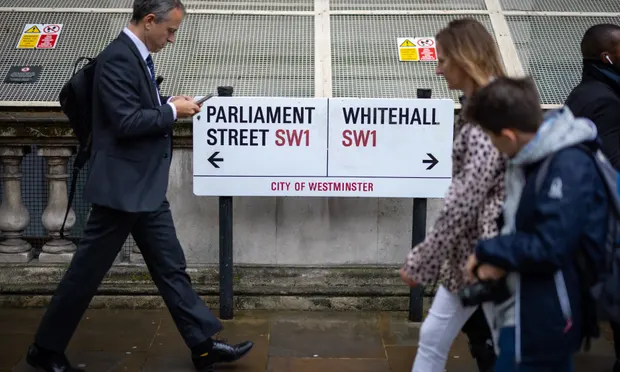The UK civil service has paused its flagship graduate scheme for at least a year in order to reduce its number of staff.
The scheme, known as the civil service fast stream, will not run in 2023 as it has in previous years.
The decision was made at a Cabinet Office board meeting on 19 May, chaired by Stephen Barclay, the prime minister’s chief of staff.
The move comes after the government said it wanted to cut 91,000 civil service roles in order to save money.
The civil service fast stream is made up of 15 individual schemes, and graduates with a minimum degree result of 2:2 are able to apply.
Simon Case, the cabinet secretary, had sent a letter to civil servants in which he acknowledged that although the job cuts would be “challenging”, civil service staffing levels had risen significantly since 2016, partly due to the coronavirus pandemic.
In 2016 the state employed the fewest civil servants since the second world war, 384,000, but due to Brexit that number rose to 475,000 at the end of 2021.
The government also said it had not completely ruled out a recruitment freeze or compulsory redundancies in order to reduce staffing levels. However, the decision to pause the civil service fast stream has faced criticism.
“Focusing on headcount reductions rather than budget savings can create perverse incentives, skewing towards losing the cheaper and younger talent rather than making bigger efficiencies elsewhere.”
The biggest civil service union warned of potential strike action after plans for job cuts were announced, with Mark Serwotka, the general secretary of the Public and Commercial Services union (PCS), saying the civil service had reached a “tipping point” and that national strike action was realistic.
He added that the civil service was already struggling with a backlog of passports, driving licences, court cases and pension payments due to “chronic understaffing and a recruitment crisis”.
Regarding the planned cuts, a government spokesperson said: “Our focus is on having a civil service that has the skills and capabilities to continue delivering outstanding public services, which is exactly why we have changed recruitment rules to bring in the very best talent and are investing in the professional development of our people.”
The spokesperson added that all taxpayer spending must show “efficiency and value for money”.
Source: The Guardian


